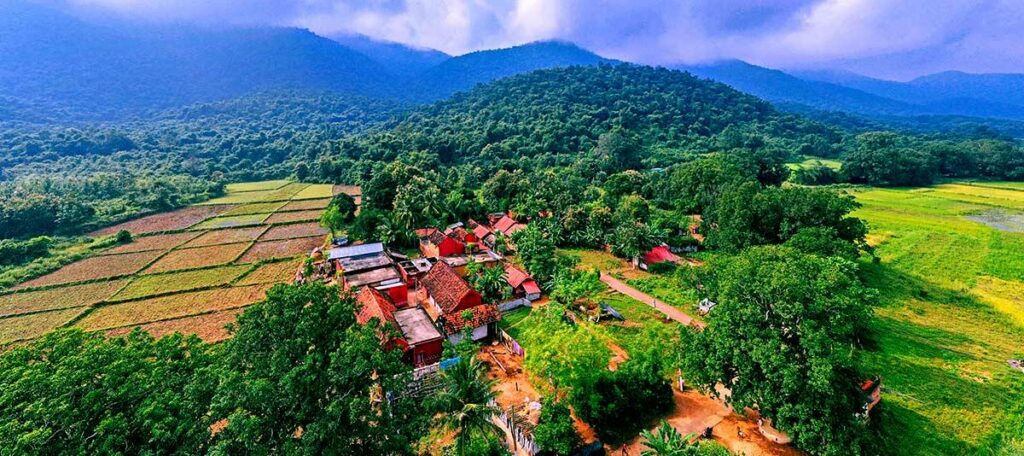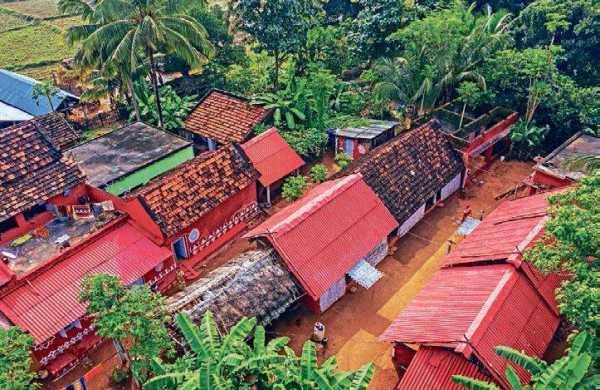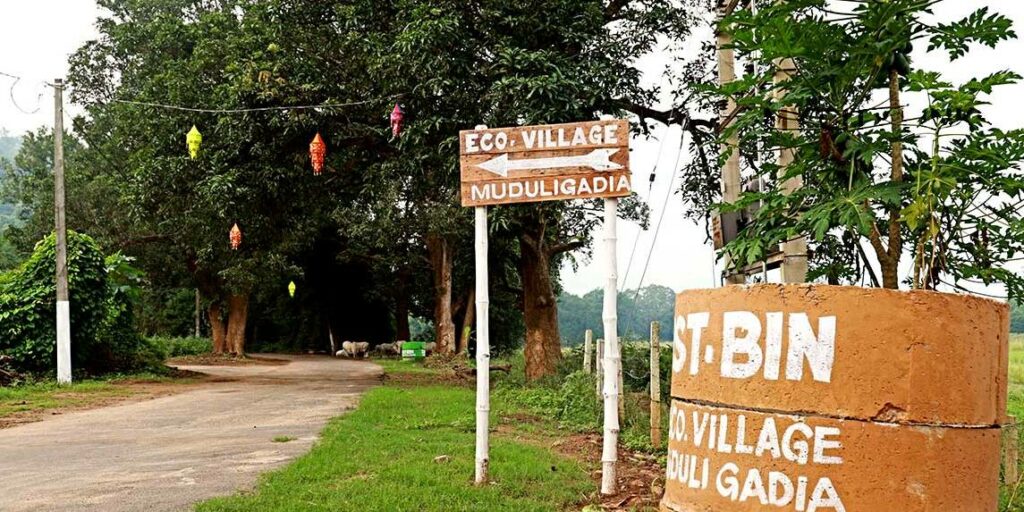OdishaPlus Bureau

Muduligadia, an ordinary village in Nayagarh district, has earned the distinction of the first eco-village of the state. Located on the bank of Mahanadi river adjoining Satkosia gorge, villagers here have set an example of conserving the natural environment through a business model.
With the handholding of wildlife wing of Forest Department, communities in the village have come forward to provide a better life to the future generation. About 2 km away from the Badmul ecotourism project, the village has 12 tents on sand-bed managed by 30 local community members.
All houses in the village have been repaired with colorful verandahs and traditional wall paintings done by villagers to make them attractive. Villagers have formed Eco-Development Committee (EDC) and developed a mechanism to make the project self-sustained.

Trees and roads are decorated for welcoming tourists and residents have developed a common worship place. All 35 households in the village have been using LPG gas instead of firewood for the past three years.
According to EDC president Sumanta Das, the lifestyle of villagers has improved a lot, thanks to the ecotourism project which is not only providing employment but also changing the lives of communities dependent on the forest.
The eco-village has generated employment for people living near the protected area and has been a source of awareness for conservation. The entire landscape now boasts of zero fire, zero poaching and zero dependence on forest. The community in return has helped increase the health of the forest and wildlife population.

Odisha’s model of eco-tourism is one of the unique models in the country where entire revenue generated from eco-tourism projects goes to the community as their wages get ploughed back for the management of nature camps.
Of the total revenue generated from the online booking of tents, 35 percent goes to the eco-tourism group managing the destinations as their wages, 25 % for recurring expenses towards the day to day food and maintenance, 10% for infrastructure development, 10 %for the EDC and another 20 percent towards Government revenue and corpus fund.
According to DFO, Mahanadi Wildlife Division, Anshu Pragyan Das, each household is earning on an average Rs 15,000 per month every year. Their lives have been transformed from collecting and selling forest produce for livelihood to planning and managing the eco-tourism property. Women are also actively participating in the management of the project.






















